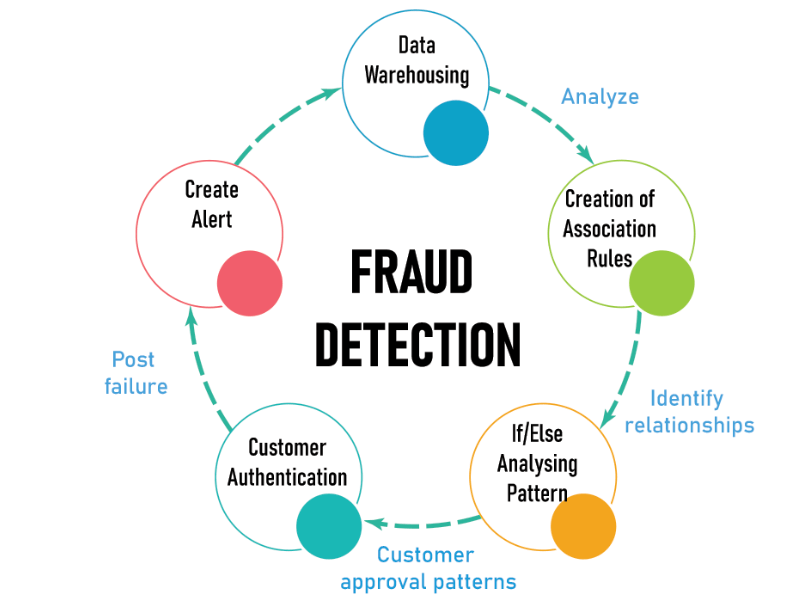How to Protect Your Business from Fraud: A Guide to Spend Management Strategy

The issue of fraud has grown to be concerning for companies of all kinds. The development of technology has also made fraudsters more cunning and inventive in their methods of tricking companies. A strong spend management plan is essential for firms, as fraud costs them 5% of their yearly income, according to research by the Association of Certified Fraud Examiners.
What is Spend Management?
The practice of monitoring and regulating an organization’s spending is known as spend management. It involves keeping an eye on and evaluating every expense related to operating a company, such as purchasing, accounts payable, travel, and purchasing expenses. An effective spend management strategy focuses on optimizing these expenses to increase profitability and minimize risks, such as fraud.
The Importance of Fraud Protection in Spend Management
The financial health and reputation of a firm may be greatly impacted by fraud. In addition to causing monetary losses, it also undermines the organization’s credibility and confidence. Businesses can detect possible fraud hotspots and take proactive steps to safeguard themselves by implementing appropriate expenditure management procedures.
Here are some ways that a solid spend management strategy can help protect your business from fraud:
- Increased Visibility: A comprehensive spend management system provides real-time visibility into all expenses, making it easier to detect any suspicious activities or transactions.
- Risk Assessment: By analyzing spending patterns and identifying anomalies, businesses can assess their vulnerability to fraud and take proactive measures to prevent it.
- Automated Controls: With automated spend controls in place, businesses can set spending limits and approve transactions based on predefined rules. This helps prevent unauthorized or fraudulent expenses.
- Streamlined Approval Processes: A strong spend management strategy includes streamlined approval processes for all expenses, leaving no room for potential fraud through manual intervention or loopholes.
- Data Analysis: Utilizing data analytics tools, businesses can identify any unusual spending patterns or anomalies that may indicate fraud. This helps in early detection and prevention of fraudulent activities.
- Employee Education: Educating employees on proper spend management practices, including identifying potential fraud and reporting it, is crucial to mitigating the risks of fraud.
- Regular Audits: Conducting regular audits of all expenses can help detect any fraudulent activities that may have gone unnoticed, and take corrective measures.
- Cybersecurity Measures: With the increasing threat of cybercrime, businesses should invest in robust cybersecurity measures to safeguard their financial data from potential fraudsters.
Besides these preventive measures, it is also essential for businesses to have a plan in place in case they fall victim to fraud. This includes having an incident response plan and a designated team to handle the situation effectively.
In addition to protecting against external fraud, businesses must also be vigilant about internal fraud. This can include employees misusing company funds or engaging in other fraudulent activities. To combat this, businesses should have strong internal controls in place such as segregation of duties, regular checks and balances, and employee background checks.
Read also: 5 Security Practices to Shield Your Business from Data Breaches
Moreover, having a spend management strategy that includes clear policies and procedures for expense approvals and reimbursement can also help prevent fraud. This can include setting spending limits, requiring proper documentation for expenses, and implementing a whistleblower policy to encourage employees to report any suspicious activity.
Conclusion
With the increasing risk of fraud in today’s digital age, businesses must have robust measures in place to protect their financial data and prevent any potential losses. From regular audits to strict internal controls, and a well-defined spend management strategy, businesses can mitigate the risks of fraud and safeguard their finances effectively. So don’t wait until it’s too late – take action now to protect your business from potential fraud threats.
FAQ’S
Q1: What is business spend management?
Business spend management is a strategic approach for controlling and optimizing company spending. It involves the processes, systems, and procedures used by organizations to manage and control their expenses efficiently.
Q2: How can a robust spend management strategy help in fraud protection?
A robust spend management strategy can play a crucial role in fraud protection. It can provide visibility into spending data, allowing businesses to identify unusual or suspicious activities promptly.
Q3: What role does technology play in business spend management and fraud protection?
Technology plays a critical role in business spend management and fraud protection. Advanced spend management software can automate various tasks such as expense tracking, invoice processing, and supplier management, reducing the risk of manual errors and fraud.




